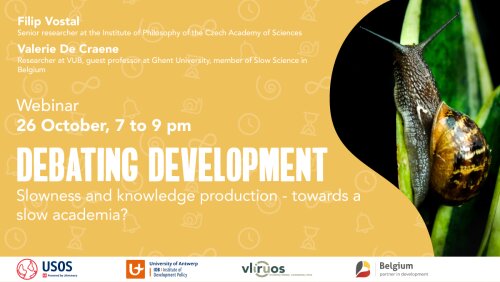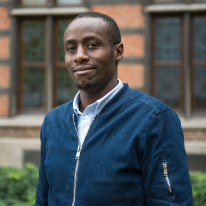Watch the webinar


There is ample evidence monitoring how and why academics suffer from chronic time-poverty; how and why they are convulsively rushed and how and why they are passive victims of some more-or-less hidden temporal conspiracy consisting of time-thieves and accelerating academic structures. Over time our keynote speaker Filip Vostal realized that by drawing attention to accelerating academia (Vostal 2016), he is indirectly co-generating calls for slowdown, escalating victimization discourse, and the culture of excessive complaining. Mushrooming and often radically voiced critiques of academia have so far had very little effect on academic cultures, governance, management, and performance ideologies. Hence, inspired by Stevie de Saille et al. (2020), in this talk he takes a different approach. Drawing on de Saille et al.'s seminal work and rather than another critical rehearsal pursuing slow or fast academia as the ultimate remedy, he advances their notion of "responsible stagnation" as the foundational socio-economic and cultural model that potentially bypasses (at least on a conceptual level) the dogma of academia as the engine sustaining capitalist economy. Valerie De Craene, a postdoctoral researcher and an active member of slow science in Belgium, will respond to Vostal’s presentation as a discussant.

Filip Vostal holds B.A. in Politics and Society, Anglo-American University in Prague (2007), MSc. in Sociology, University of Bristol (2008) and a Ph.D. in Sociology from the University of Bristol, United Kingdom (2013). He is a Senior Research Associate, Centre for Science, Technology, and Society Studies (CSTSS), Institute of Philosophy of the Czech Academy of Sciences. His research interests encompass sociology of time, science & technology studies (STS) and critical social science. He is the author of Accelerating Academia: The Changing Structure of Academic Time (Palgrave Macmillan, 2016). He has also published several articles about the shifting temporality in/of academia and science in leading journals such as Time & Society, European Journal of Social Theory, Science, Technology & Human Values.

Valerie De Craene is a postdoctoral researcher, activist and scholar who engages in analyzing contemporary politics of science and is an active member of slow science in Belgium. She has a PhD in geography, and has worked on several applied research projects commissioned by governments and civil society organizations. She currently works as a researcher for Motief, as postdoctoral researcher at Cosmopolis (VUB) and as guest professor in Social and Economic Geography (Ghent University). Her main research interests lie in two broad areas: First, gender, sexuality, and manifestations of difference and inequality in the organization of space more broadly; and second, questions surrounding the production of knowledge, ranging from epistemological, methodological and ethical dimensions of doing embodied research to the political economy of higher education, the neoliberal university and slow science.

The event will be moderated by Ivan Ashaba, teaching assistant at the Institute of Development Policy (IOB), University of Antwerp